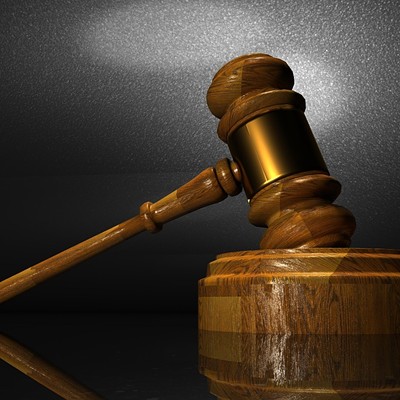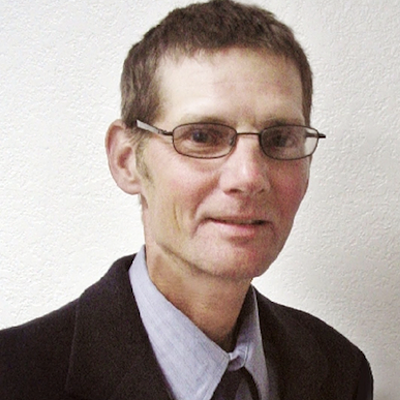I've usually been excused from service simply by sharing the slogans on my bumper stickers. (Like, "Why do we kill people who kill people to show that killing people is wrong?") However, on the latest occasion, a murder trial, the prosecution was not asking for the death penalty, and I made it into the final group.
The judge asked if there was any reason that I should not be chosen as a juror. I answered that I had been arrested five times and recently had been sentenced to six months of unsupervised probation. He asked me to explain.
I expected him to stop me at any moment, but he listened like a gracious bartender, willing to hear the whole story. I described the reason for, and the outcome of, the five times I appeared in court as a defendant. (What a gift for an activist: a captive audience of peers who also made it into the finals, filing into the room waiting to be questioned, including notables like a former president of the UA!)
I talked about the "Raytheon Eight" when, a month before the invasion of Iraq, we dressed like United Nations inspectors (calling ourselves the "United Neighbors") and insisted upon inspecting for weapons of mass destruction at Raytheon. After a trial all but ignored by the press, and after supplying proof that we would be supervised by a minister or some other respected authority, we got off with three hours of community service. Trying to prevent an illegal war would not count.
I considered, for a moment, offering to sell the judge our poster of the event, now that most of the world and more than two-thirds of our own country agree with the position we took, but I decided not to push my luck. I told him about being arrested at a military recruiting center that no longer exists for handing out pamphlets regarding the genocidal effects of depleted uranium used in our weapons. I was sentenced to a "diversion program," a course on "anger management."
Then I recalled the third anniversary of the invasion (we were now the "Raytheon Six"), when we nonviolently attempted to block a shipment of weapons. We were held in a van in the middle of nowhere while officers figured out as many charges as possible to bring against us. Other cops were very nice, checking on us occasionally, and actually readjusting the handcuffs of a fellow with back problems. Again, community service; none of us went to jail.
They were all listening--the bailiff, the accused, the lawyers--and, to be honest, it took all my self-control not to haul off and start preaching. I described two more arrests in front of the military recruiting center on Speedway Boulevard and Wilson Avenue.
I stepped off the sidewalk to avoid being shoved off by war supporters (who were, as usual, shouting insults and whispering threats), inadvertently disobeying an officer's order to stay out of the street. I had witnesses, and that case was dismissed. More recently, I walked into the street when my sign ("NO WAR") was being blocked by war supporters who promptly reported me to the police. I was charged with "obstructing the highway," receiving a $500 suspended fine, 12 months of unsupervised probation and an order not to step out onto Speedway.
There was no sage pronouncement from the judge, and I couldn't believe I was still sitting there. He simply reminded me they were not asking for the death penalty, and asked if I could think of any reason that would prevent me from making an unbiased decision.
I thought for a moment and said, "Having taken a tour through the horror of maximum security in Florence, I could not live with myself if I was in any way responsible for condemning a fellow human being to that situation."
He asked if I could disregard what I had seen and find the accused "guilty" or "innocent." I wanted to shout, "Pull the system out of the Dark Ages and give it to enlightened people who can 'hate the crime and love the criminal.'"
Instead, I just said something like, "In all honesty, I could never forget what I have seen, and I might not make an unbiased decision."
I was then excused--not unkindly--from performing civic duty.










